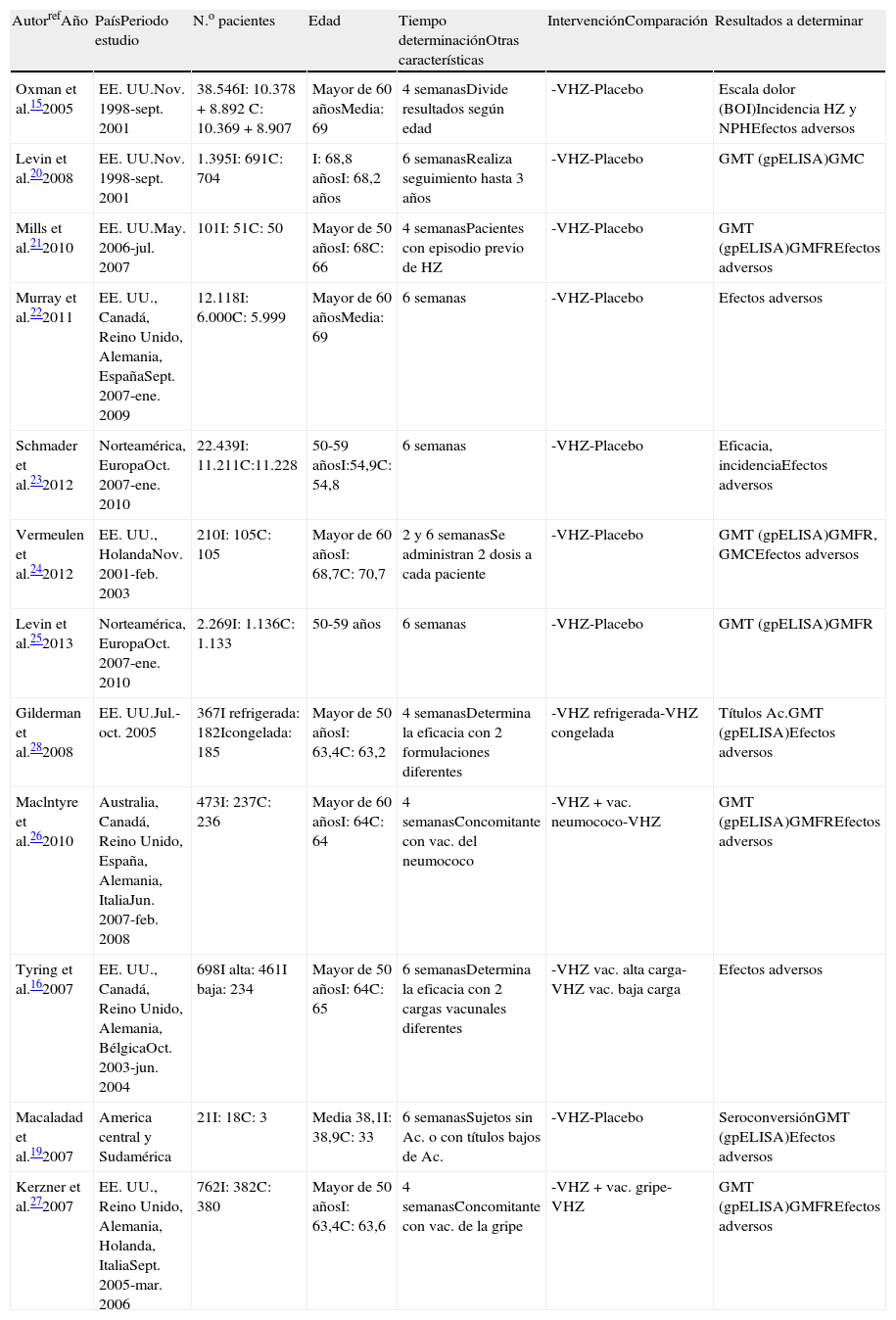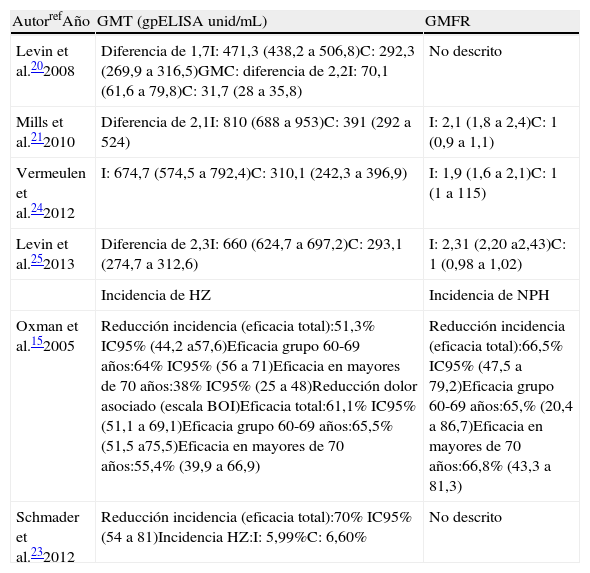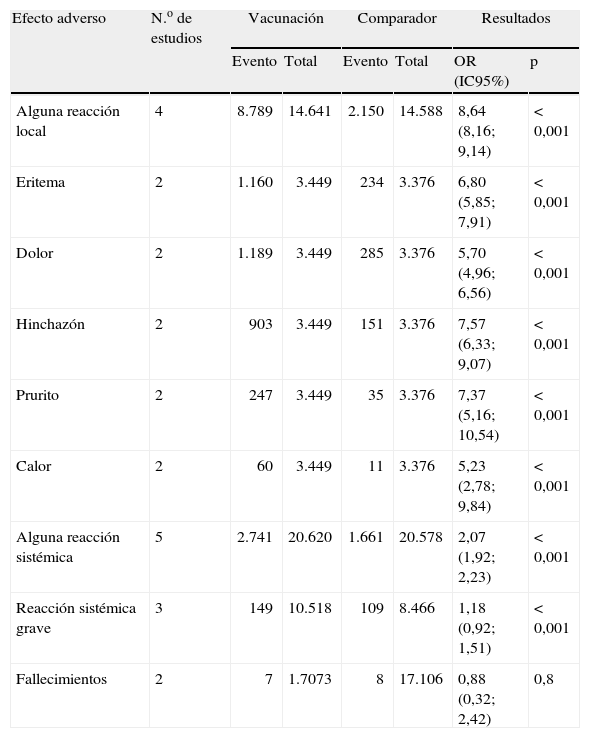La reactivación del virus varicela-zóster en adultos produce una erupción conocida como herpes-zóster. Las complicaciones afectan al sistema nervioso central y pueden ocasionar neuralgia postherpética.
ObjetivoEvaluar la eficacia y seguridad de la vacuna para la prevención de la reinfección por el virus varicela-zóster en población adulta.
MétodosRevisión sistemática de la literatura (2005-2013). Se realizó una búsqueda bibliográfica en fuentes de dato electrónicas como MedLine o Embase, y una búsqueda manual en revistas especializadas. Los criterios de inclusión fueron ensayos clínicos con adultos vacunados frente al herpes-zóster, registrando resultados de eficacia y seguridad. La calidad de los estudios se evaluó mediante el cuestionario CASPe.
ResultadosSe incluyeron 12 ensayos clínicos de calidad moderada. Los rangos de títulos de anticuerpos (GMT) fueron superiores en el grupo vacunado frente al placebo (471-810 vs. 292-391 gpELISA/mL); y los rangos de GMFR también fueron superiores (2,3-1,9 vs. 1). La vacunación reducía la incidencia de herpes-zóster, con una eficacia protectora del 51-70%. Los efectos adversos locales (60 vs. 14,7%) y sistémicos (13 vs. 8%) fueron superiores en los grupos vacunados, siendo las reacciones más frecuentes dolor, eritema e hinchazón. Los efectos adversos graves y fallecimientos no presentaron diferencias entre grupos.
ConclusionesLa vacuna frente al herpes-zóster muestra un buen perfil de eficacia y seguridad. Presenta una buena capacidad inmunógena y reduce la incidencia de herpes-zóster y neuralgia postherpética. Los efectos adversos graves son poco frecuentes y se presentan de manera similar en los grupos estudiados.
The reactivation of the varicella-zoster virus in adults causes a rash known as herpes-zoster. Complications affecting the central nervous system and can cause postherpetic neuralgia.
ObjectiveTo evaluate the efficacy and safety of the vaccine for the prevention of re-infection by varicella-zoster virus in adults.
MethodsSystematic review of the literature (2005-2013). A literature search was performed in electronic databases such MedLine or Embase, and hand search in journals. Inclusion criteria were clinical trials in adults vaccinated against herpes-zoster, recording results of efficacy and safety. Quality of the studies was assessed by CASPe checklist.
ResultsTwelve clinical trials of moderate quality were included. The ranges of antibody titters (GMT) were higher in the vaccinated group compared to placebo (471-810 vs. 292-391 gpELISA/mL). GMFR ranges were also higher (2.3-1.9 vs. 1). Vaccination reduced the incidence of herpes zoster, with a protective efficacy of 51-70%. Local adverse effects (60% vs. 14.7%) and systemic (13% vs. 8%) were higher in the vaccinated groups, the most frequent reactions pain, redness, and swelling. Serious adverse events and deaths were not different between groups.
ConclusionsThe vaccine against herpes-zoster shows good efficacy and safety profile. Vaccine has good immunogenicity and reduces the incidence of herpes zoster and postherpetic neuralgia. Serious adverse effects are rare and occur similarly in studied groups.
Artículo
Comprando el artículo el PDF del mismo podrá ser descargado
Precio 19,34 €
Comprar ahora









